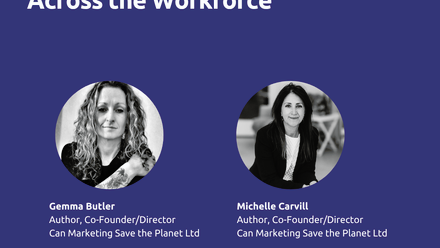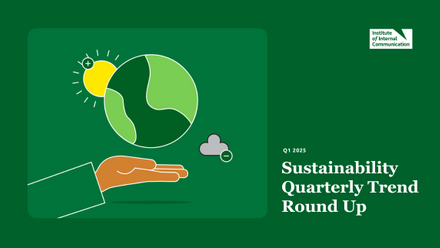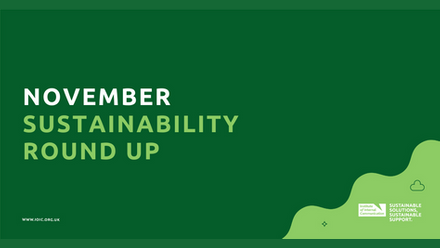Environmental sustainability
Might 2023 be hailed as the “beginning of the end” for the fossil fuel era? Some climate experts certainly believe there may be grounds for cautious optimism that it will be.
According to scientists, global carbon emissions from energy use may have peaked last year, before beginning a terminal decline as the net-zero mission intensifies. This would mark a critical milestone in the fight against climate chaos.
These signs are encouraging, of course, but this inflection point comes years later than scientists had advised to restrict global heating to 1.5°C. And while we can momentarily pause to celebrate this welcome change of direction, we are nonetheless going to continue to need deep, rapid emission cuts if we hope to meet carbon budgets.
Analysis shows renewables growth now outpaces increases in demand for energy. The International Energy Agency (IEA) predicts this clean energy boom will soon displace fossil fuels globally. China’s emissions may have peaked in 2023, for instance, driving a worldwide tipping point.
OPEC and others argue that oil demand will keep rising, of course. But critics say they consistently underestimate the burgeoning appetite for EVs.
Ultimately, while emissions may finally be edging the right way, there’s still a lot of work for us to do inside and outside of our organisations collectively to build on that momentum. And policies must continue to incentivise renewables and disincentivise fossil fuels – or progress could be slow.
Economic sustainability
A Forbes piece entitled “Sustainability Marketing Just Got Tricky, And Better” also struck a chord with us this month.
Sustainability solutionist Solitaire Townsend writes that it's taken a while for regulators to catch up to tackle organisational greenwashing. However, the last few years have seen a profusion of new laws that aim to keep a lid on how businesses talk to the world about their environmental credentials.
She suggests marketeers now need to “stop claiming and start helping” their customers to become “sustainability heroes”. They need to be shown the difference their choices are making – and marketing needs to celebrate how customers have prevented kilograms of plastic or carbon from harming the planet.
“Make your sustainability marketing about what really matters: making sustainable choices accessible and exciting for everyone, everywhere,” she argues.
So, as regulations get tighter, we think there are parallels here from an adjacent (albeit externally-focused) communication discipline – and certainly learnings for us as IC professionals from what our marketing colleagues will need to do with customers, when it comes to engaging and bringing along our colleagues internally.
Community sustainability
There’s a school of thought that suggests positive psychological states – such as hope or optimism –motivate engagement and galvanise action. So, having started the year by seeding a few glints of optimism to share with our colleagues – while not downplaying the scale of the crisis facing our planet, of course – we wanted to build on that with our own notes of positivity this month.
We were therefore interested to read about professor of Earth system science at University College London (UCL) Mark Maslin’s approach – leveraging humour (with help from famous friend, Jo Brand) and a dose of optimism to “interpret” climate science for a wider community.
Maslin argues there are reasons to be positive, since humans have all the technological means needed to transition to a cleaner, renewable world – despite last year being the hottest ever recorded. We just need to be going about it with greater alacrity, he believes.
This month, he co-launched the first “Love Your Planet” event at UCL in conjunction with Al Gore’s charity, the Climate Reality Project. Titled Local to national – achieving green transition, its aim was to transform awareness into action and make a tangible impact on our planet. The event involved a day of panels, talks and networking on the green transition, all aimed at exploring how we get business, politicians, academics and activists working together to make this happen quicker.
Interestingly, he chose Valentine’s Day for the event, to get people thinking about their relationship with their loved ones, but also with their planet. As he says, “Just like we nurture our relationships with other people, we really should be nurturing our relationship with our own planet.”
Organisational sustainability
Today’s ESG landscape looks pretty different to a mere decade ago, when it was known more widely as CSR. In addition, with the climate emergency intensifying and societal challenges mounting, we’re increasingly seeing an increased focus on companies’ most valuable assets – their employees and other internal stakeholders.
A particular area that experts believe will continue to evolve in 2024 is the need to ensure that key sustainability-related skills are integrated into various roles across businesses and organisations.
Putting colleagues first with transparent and adaptive responsibility strategies allows companies to not just survive but lead positive impact.
This Fast Company article looks at how sustainability initiatives are set to develop within organisations. It argues they are set to take “interconnected higher ground” this year, with growing attention to resilience and value creation for both businesses and communities.
It obviously behoves us as IC professionals to keep our own sustainability skills and knowledge on point to help effect meaningful change within our organisations, but the article predicts further expansion and integration of these skills into key roles like finance, law, and strategy this year.
Personal sustainability
Recent reports confirmed 2023 was the hottest year on record by a huge margin. So, with the poles melting, forests disappearing, and coral reefs dying off, we would all be forgiven for thinking we’re hurtling towards annihilation.
But while climate change and biodiversity loss may seem like insurmountable problems, data scientist Hannah Ritchie is cautiously optimistic that we can solve them.
In her new book Not the End of the World, she has crunched the stats on saving the planet and concluded we could actually be the first generation to meet human needs while reducing environmental footprints.
The book is set to whip up controversy, but Ritchie is insistent we shouldn't give in to despair – that the situation is brighter than it might first appear and that actually, we are far from doomed.
Some of the power to secure a safer future lies in our hands as consumers, of course. In richer parts of the world, for example, most people should be eating less meat and switching to EVs. But did you know that the average British citizen today has a carbon footprint equivalent to that of someone in the 1850s?
It’s not every day you find a climate change book with such an optimistic message, but this crash course on tackling environmental challenges may just leave us thinking our planet can be saved after all. And that we can all do our bit to help, both as workers and as consumers.





